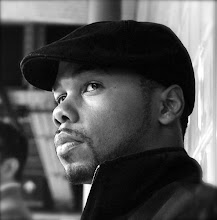Perhaps you are taken aback by the title fragment on the line above. Seemingly uncharacteristic of an English major, isn't it? Answer 1: Even the mind of an English major thinks in fragments from time to time. Answer 2: Before we graduated, they told us that we were allowed to use fragments so long as we knew they were fragments and did it for a significant reason. The interesting question behind the fragment is one that the greatest minds of the world have pondered before undertaking anything. Even the not-so-great minds have a habit of asking if the outcome outweighs what it requires. After having hypothesized, some hesitant soul reaches a conclusion and acts. Yet, even the most forward-thinking, perceptive, brilliant mind must take a moment to reevaluate the situation after having acted upon the final hypothesis. My point? I'm not only normal for doing what I do, but perhaps also prudent to do so. Today, having not just tested the waters but having been fully immersed in the new position at Miracle Meadows, I began to ask myself the same question. Here I am, working in the middle of nowhere trying to help kids who appear to not only have no desire to be helped but present a resentment for the implication of my presence that perhaps they do need help. Earlier in the day a student began comparing me to other staff members, stating that I am the best one there (for clearly biased reasons) and predicting that I would eventually hate the school but would never leave because I don't ever give up. It's funny how kids have their own little way of giving their expectations all the while trying to pass them off as reality. (Looks towards the clock—poised at 11:56PM—and slaps forehead muttering, "Focus, man! Focus!") But, I must digress. Worth it? The answer came this evening as I had a conversation with one of the older students. It started with him just asking about me and my background, seeing that we'd never really conversed seriously. The discussion then turned when he began asking what I learned at the ARISE Institute—from which I just recently graduated. I told him of all the classes and the things we studied in the Bible. He then asked about prophecy and just what the Bible says is still left to transpire before the Second Coming of Christ. I led him through some passages I could think of off the top of my head that have not yet been fulfilled, and from there, the conversation grew. In the end, the heart of the discussion was a follow-up to the biblical view of Judgment Day. We talked about what God is really looking for in His people and how we, knowing the standard, seek to meet it in our own strength—which always proves to be wholly inadequate. I then showed him the man of Romans 7, who has the desire to live a Godly life but, while serving God with the mind, finds his actions inconsistent with his desire. As I talked with the young man, he completely identified with that frustration and expressed the desire to escape from it. Before bedtime arrived, I was able to share with him some simple methods from scripture through which he can begin to unite his actions with the Godly aspirations of his heart. As he was walking away to retire for the evening, he said, "Thank you," and then asked if we could talk more tomorrow. Worth it? Yes. These few days in the wilderness of Salem, WV have not been the easiest in my life—more like some of the most challenging. Tonight I ask myself, is it really worth it? It is. If that is the most I ever get to minister to the students while I am here, it is still worth it, but I speculate that this is only the beginning. Worth it? More than worth it.
skip to main |
skip to sidebar

The Middleton
The words, thoughts, and actions of The Middleton--Benjamin A. Middleton.
About Me

- The Middleton
- My only goal in life is to bring the gospel of salvation to anyone who will listen and to thereby hasten the coming of my Lord and Savior, Jesus Christ (Matthew 24:14).
Readers
Labels
- Africa Fundraiser (1)
- Mission trip to Bulawayo (1)
- Zimbabwe (1)



